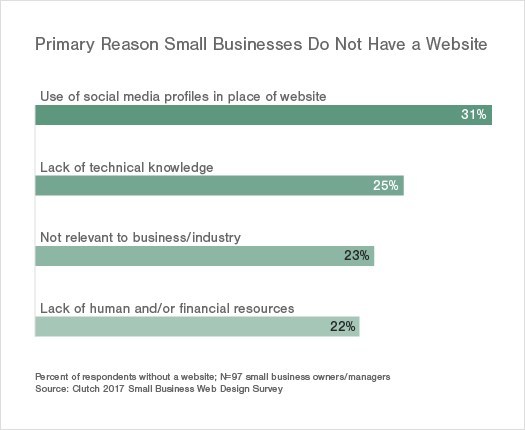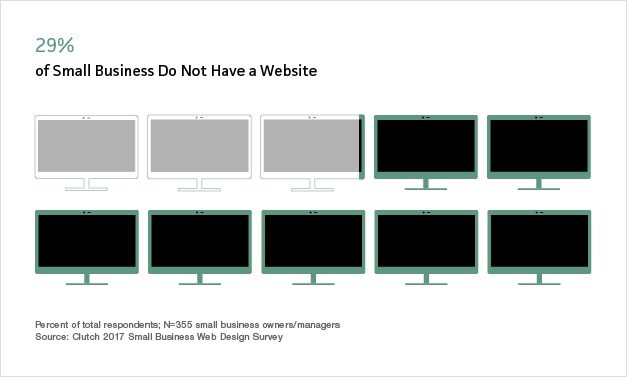By Clutch, Special for USDR
Nearly one-third of small business owners run their business without a website, and some indicate they will probably never have one, according to a new survey from Clutch, a leading B2B ratings and reviews firm.
The survey found that 31% of small businesses choose to use social media profiles rather than a dedicated website to cultivate a web presence. Others (23%) cite a lack of industry relevance as the primary reason for not having a website.


However, experts stress that a website is not only beneficial in every industry but also necessary. In the digital era, Internet searches are increasingly replacing cold calls and other non-digital lead generation. Without a web presence, it is difficult to compete for the Millennial and Gen-Z market.
“In the old days, it was mainly entrepreneurs that were coming to the Internet,” says Alan Dale, CEO, Los Angeles Web Design, a boutique Internet business development agency specializing in web design. “Now, more traditional businesses – brick and mortars – are saying ‘We should get this figured out. Everybody else is on the Internet. I guess we need to be too.’ A lot of it is an education process and crossing the digital divide.”
The Clutch survey also reveals that location is indicative of whether a small business has a website. Only 58% of Midwestern small businesses have a website compared to the South (72%), the Northeast (73%), and the West (77%).
Experts interviewed about the survey findings attribute the lack of small business websites in the Midwest to a common perception many industries in the Midwest have toward the Internet: they tend to view websites as a waste of time, since traditionally, their leads come from word-of-mouth referrals. In addition, the Midwest has traditionally been slow to cultivate a culture of tech startups similar to Silicon Valley in California.
But experts say websites can help small businesses in several ways and point to five key benefits for business owners and managers to consider:
- Marketing opportunities increase from a “local” audience to a global audience
- Digital sales conversions save time and labor
- An elevated brand and greater ability to manage web aesthetic
- More cost effective than brick and mortar
- Ability to track marketing and business analytics
Those small businesses that do build websites place an emphasis on mobility and search engine optimization (SEO). Nearly 80% of small business websites are now mobile friendly, one of Google’s major requirements for websites attempting to rank highly in their search algorithm.
The survey included 355 small business owners/managers across the United States. Respondents answered questions regarding their experience with website ownership as a part of the 2017 Small Business Digital Marketing Survey. 40% of respondents’ companies have 10 or fewer employees; 27% have 11-50 employees; 25% have 51-250 employees; and 8% have 251-500 employees. 50% have an annual revenue under $1 million.
For the full report, please visit:
https://clutch.co/web-designers/resources/small-business-2017-website-survey.
About Clutch
A B2B research firm in the heart of Washington, DC, Clutch connects you with the agencies and software solutions that can help you enhance your business and meet your goals. Our methodology maps agencies and software solutions based on consumer reviews, the type of services offered, and quality of work.
SOURCE Clutch

